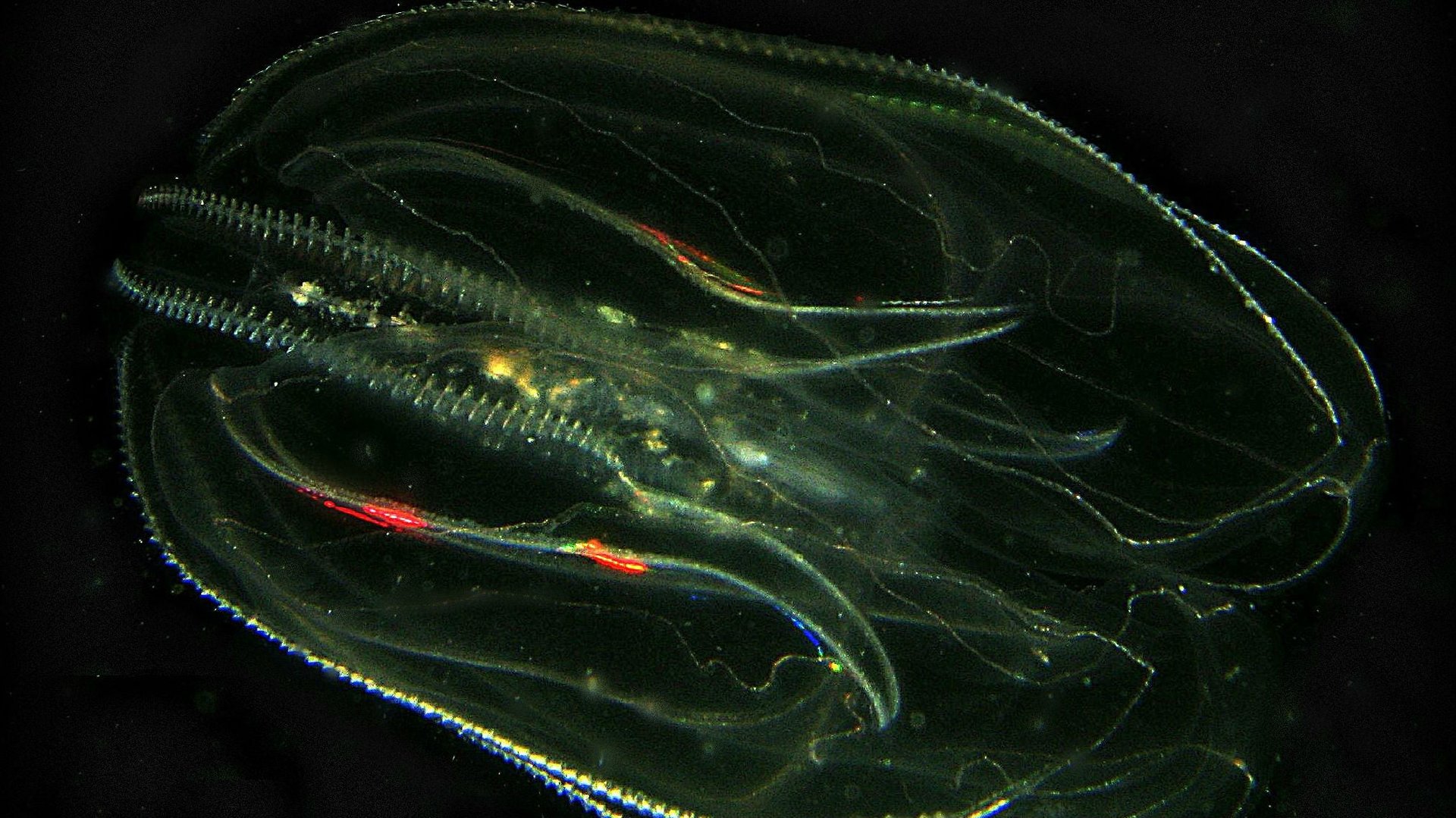An invasive jellyfish has barged in on Italy’s delicious anchovies
Anchovies may not be the most popular pizza topping, but in the Adriatic Sea off the coast of Italy, they’re a part of local commerce.


Anchovies may not be the most popular pizza topping, but in the Adriatic Sea off the coast of Italy, they’re a part of local commerce.
And this year, the salty fishes’ spawning season is being interrupted by thousands of unwelcome guests: a massive swarm of an invasive species of comb jellyfish called Mnemiopsis leidyi.
M. leidyi have been present in the Adriatic Sea since 2005, but never in numbers as large as they have been this year. ”Population densities were estimated to be up to 500 specimens per square meter,” Davor Lučić at the Institute for Marine and Coastal Research in Dubrovnik, Croatia, told the New Scientist.
Comb jellies are often brought over on trade ships. These commercial vessels sometimes use sea water for extra stability weight in the bottom of the ship, and inadvertently carry jellies with them. When the waters are dumped at their final destination, these jellies adapt fairly easily to their new habitat.
Comb jellies aren’t harmful to humans, but they wreak havoc on the local ecosystem. In the Adriatic Sea, they don’t have any predators yet. The rapidly reproducing comb jellies deplete supplies of plankton, as well as the eggs and larvae of fish like anchovies.
Back in 1982, oil tankers from the Atlantic brought over (pdf) M. leidyi in their ballast water to the Black Sea. The region was plagued by a massive bloom of comb jellies until 1997, when another invasive species of comb jelly, called Beroe ctenophore, was introduced in ballast water, which happens to feed on M. leidyi. Scientists don’t think this year’s swarm of M. leidyi will be as damaging as previous ones in the Black Sea because the existing ecosystem is healthier with more natural species of fish and less pollution. However, it does bring up the possibility of introducing B. ctenophore into the region, which just goes to show that even in the animal kingdom, sometimes the enemy of an enemy is a friend.